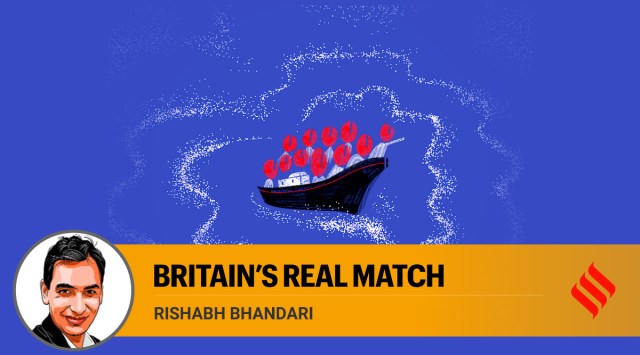
An extraordinary row has engulfed Britain involving a football icon, a national broadcaster in crisis and uproar over a controversial asylum policy. Gary Lineker’s comments comparing the Tory government’s stance on a proposed asylum legislation to 1930s Germany led to his suspension from the BBC’s ‘Match of the Day’ and subsequent boycotts from his colleagues. It has prompted heated discussions over free speech and compassionate conservatism exposing the growing polarisation across the political divide. But away from the rhetoric, the truth remains that Britain needs a mature discussion about asylum seekers that combines compassion with seeking hard headed solutions.
First broadcast in 1964, ‘Match of the Day’ is a cornerstone of the BBC weekend schedule. But on March 11, the nation saw a truncated programme with no commentary or studio insights. It was all over in 20 minutes instead of the scheduled 80 minutes. The spartan outcome was the product of an inimitably British row, triggered by the government’s hardline policy on asylum-seekers. The fiasco has touched several national institutions, from the BBC, the national sporting passion, the Tory government, and Gary Lineker. The footballing icon is the BBC’s highest-paid presenter and one of its best-known. The farrago might be a sign of Britain’s fraught political divisions too.
That led to vociferous condemnation of Lineker from the right-wing press. In turn, those on the Left excoriated the government’s policy and defended Lineker. After a couple of days of fence-sitting, the BBC decided that the presenter had broken its impartiality rules and said he would “step back” from ‘Match of the Day’. The uproar is dividing Britain’s political classes on expected lines. For instance, if you know where someone stood on Brexit, asylum-seekers or some culture-wars topic, their stance on this issue may be easily surmised. Ironically, the issue of free speech bucks the trend. Many on the right who often champion “freedom” have been noticeably silent on Gary Lineker’s right to expression.
This row has fortunately reached a thaw. The BBC’s director-general, Tim Davie, indicated that he wanted Lineker back on air and that he was willing to look again at impartiality rules. The BBC reversed Lineker’s suspension and agreed to review its social media guidelines. This is a welcome development. It was not apparent how the star broke such guidelines. He said nothing on air. Nor does he present any political segments. While Lineker is associated with the BBC, few would have imputed his views to the wider organisation. What comes across is the BBC’s analogue mentality which is ill-suited to a digital age.
The wider point to call out in this affair is that complex issues are rarely as binary as they are made out to be. When each side believes with ideological rectitude in the righteousness of their cause, nuance and civility become casualties. The Left has been unflinching in its criticism of the Tories, painting them as heartless brutes with little regard for compassion. Yet that ignores the fact that the government needed to take a tough stance with thousands of individuals risking their lives to come to the country and with criminal gang exploitation of such vulnerable individuals on the rise. Sloganeering without solutions may suit the Opposition but that is not a luxury any government can afford.
On the other hand, the government’s proposals are likely to face a legal challenge or criticism through the legislative process. Deporting anyone arriving by a small boat with no right to appeal risks offending against principles of procedural and substantive fairness. Granted that when faced with unfolding human tragedy and political blow-back, inertia was not an option. Yet given Britain’s proud history of offering the genuinely needy a place of sanctuary, chartering a path that could be at odds with the 1951 UN Refugee Convention would be particularly galling. The hope is that the legislative process results in compromises including allowing the ability of claims to be processed in third countries, additional resettlement schemes and widening the appeals process. That should allow the political, legal and humanitarian objectives to be met.
None of this will be easy. But Rishi Sunak should press on with the task. The truth remains that Britain needs an approach that combines compassion with hard-headed realism. Only then will the promise of “taking back control” have a genuine chance of being redeemed.
The writer is a London-based lawyer and political commentator